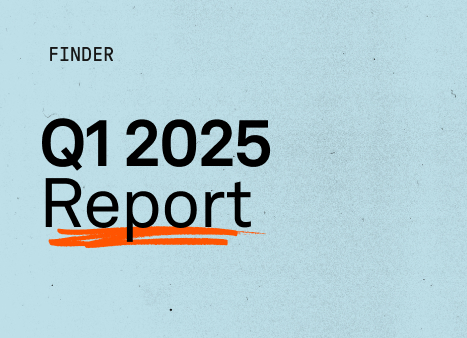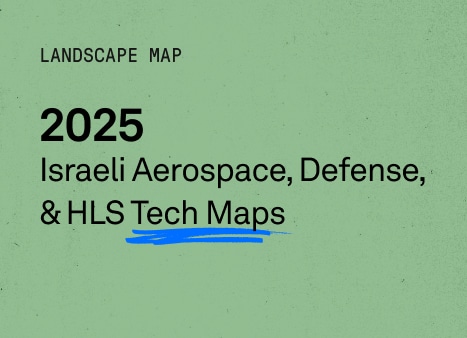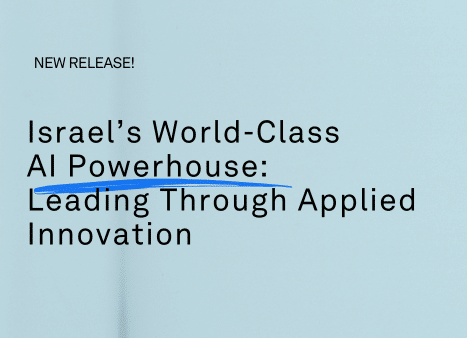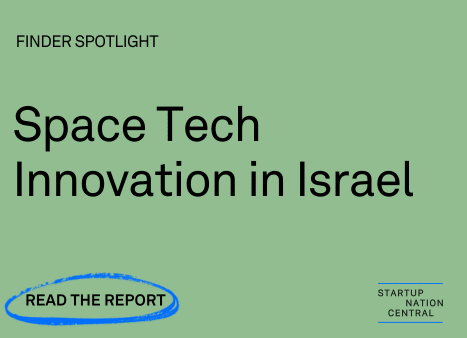Cyber Innovation Meets Global Security Trends in 2025
Research & Insights: Yanina Wainscheinker, Sector Specialist, Startup Nation Central
Editor: Einat Ben Ari, Senior Director of Data & Insight, Startup Nation Central
In Partnership with:
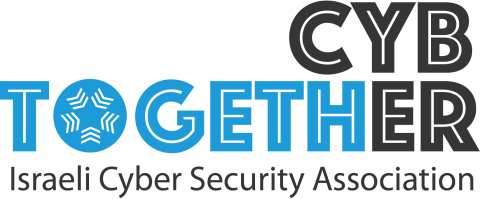

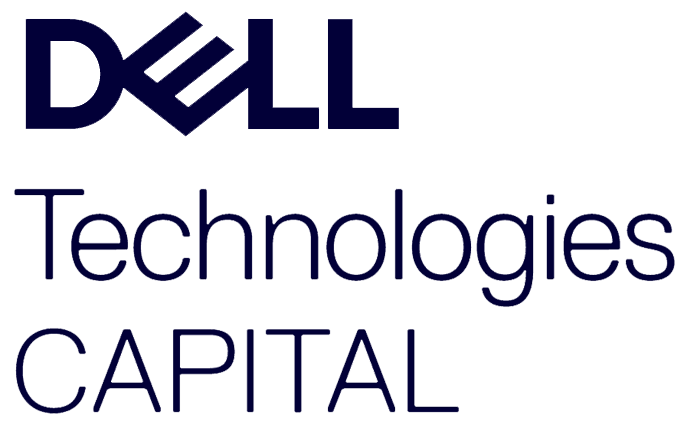
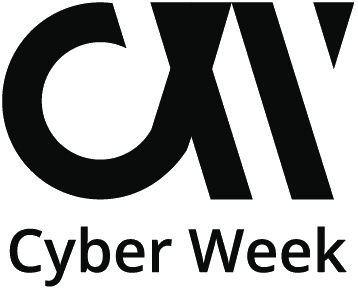
Israel’s Cybersecurity Sector Demonstrates Unmatched Growth and Global Leadership

Yariv Lotan
VP of Product and Data, Startup Nation Central
In a dynamic global technology landscape, Israel has solidified its position as the undisputed leader in the cybersecurity sector. While the global market corrected after a 2021 funding peak, Israel’s cybersecurity ecosystem demonstrated remarkable resilience and growth in 2024. Private funding nearly doubled from 2023, reaching a level equal to 40% of the entire U.S. cybersecurity funding market, while European and Asian markets contracted. This outperformance underscores unwavering investor confidence in Israel’s unique innovation model, even amidst geopolitical complexities.
The sector’s strength is rooted in a mature and scalable ecosystem. Although cybersecurity firms constitute only 7% of Israel’s tech companies, they command a record 38% of total tech investment in 2024. This is a testament to their strategic importance and proven ability to scale. Compared to the broader Israeli tech landscape, cybersecurity companies show a significantly higher concentration of firms in the growth stage (16% vs. 7%) and employ more people, with 31% having over 50 employees compared to just 17% in the general tech ecosystem. This indicates superior scalability and a robust path to maturity.
Key drivers of this success include a constant influx of elite talent from military intelligence units, a global-first mindset that bypasses domestic market limitations, and a strategic shift toward a U.S.-style, capital-intensive growth model. This focus on building best-in-class solutions has made Israeli firms prime targets for acquisition, with M&A serving as the dominant exit strategy (11% of companies acquired vs. 7% in the broader ecosystem).
Looking ahead, the “AI arms race” presents a critical, dual-front opportunity: leveraging AI for advanced defense and developing solutions to secure AI systems themselves. Israeli startups are already at the forefront of this trend, addressing GenAI vulnerabilities and the rise of autonomous agent-driven systems. As consolidation continues, driven by high go-to-market costs, Israel’s combination of deep technical expertise, early-stage validation with global CISOs, and a resilient, self-sustaining M&A culture positions it to define the next era of digital security.
Introduction
Cybersecurity has become one of the most strategically vital sectors in the global technology landscape, driven by escalating digital threats, the rapid adoption of cloud and AI technologies, and the need to safeguard critical infrastructure. Amid these global shifts, Israel has emerged as a world leader in cybersecurity innovation, investment, and impact.
Over the past decade, the sector has experienced rapid growth, both in number of companies and capital raised. Israeli cybersecurity companies attract substantial international investment, form strategic partnerships with global tech leaders, and often scale rapidly or exit through acquisitions. This reflects investor confidence in the sector and Israel’s leading role within it.
As digital systems become ever more central to business, government, and everyday life, the demand for robust cybersecurity solutions will only grow. Israel’s cybersecurity sector is well-positioned to remain at the forefront of this transformation, shaping the next era of digital security worldwide.

Global Trends
The cybersecurity landscape is witnessing a shift towards proactive defense strategies, such as the adoption of Zero Trust architectures and Managed Detection and Response (MDR) services. These approaches emphasize continuous verification and real-time threat monitoring, enabling organizations to respond swiftly to potential breaches. Additionally, the demand for cybersecurity professionals is surging, driven by the growing need for expertise in areas like penetration testing and threat intelligence analysis. Overall, the convergence of technological innovation, evolving threat landscapes, and regulatory developments is shaping a dynamic and rapidly evolving global cybersecurity market. AI expansion, quantum resilience, supply chain security, IoT protection, and cloud security innovations are some of the key trends in 2025 and beyond.
Key global trends in cybersecurity:
- The AI Arms Race: AI is revolutionizing cybersecurity, boosting defenders with rapid threat detection, incident analysis, and response automation, while simultaneously empowering attackers with more convincing phishing, malware, and social-engineering campaigns.
- Exfiltration over encryption in ransomware tactics: Cybercrimes now prioritize stealing data and exploiting it rather than simply encrypting files for ransom. These attacks often involve “double extortion,” where data is both encrypted and stolen, with threats to leak it publicly if the ransom isn’t paid.
- Targeting the Supply Chain: Instead of attacking a fortified organization directly, adversaries compromise a less-secure software vendor or service provider in their supply chain. By embedding malicious code into a trusted product update, attackers can gain access to thousands of downstream customers in a single, highly efficient attack.
- The Rise of Zero-Trust: Zero‑Trust architectures (continuous verification, least privilege) and outsourced Managed Detection & Response (MDR) services are seeing rapid adoption to combat sophisticated threats and bridge skill gaps.
- Cybersecurity as a Geopolitical Weapon: Nation-states are increasingly using cyber operations as a core part of their foreign policy and military strategy. This includes espionage, disrupting critical infrastructure, and launching information warfare campaigns to influence public opinion, blurring the lines between digital and physical conflict.
- Increased Regulatory and Privacy Pressure: Governments worldwide are enforcing new cyber rules, enacting stricter data privacy and security regulations. These mandates require stronger product security assurances, mandatory updates, incident reporting, and stricter accountability.
When comparing global funding of cybersecurity companies, all regions experienced a major funding boom peaking in 2021 driven by the shift to remote work, escalating cyber threats, and digitalization across sectors, which increased the need for robust cybersecurity solutions. The global funding was followed by a market correction in 2022 and 2023. In 2024, the United States continued to dominate the global investment landscape with the highest funding amounts. Notably, Israel showed remarkable growth, with private funding equaling 40% of U.S. cybersecurity funding and nearly doubling from 2023, while both Europe and Asia experienced a contraction in deal volume and capital raised.
From Innovation to Global Impact: Israel Leads in Cybersecurity

Yair Snir
Managing Director, Dell Technologies Capital1
The cybersecurity landscape is being reshaped by the dual forces of rapid technological innovation and increasing geopolitical isolation. AI has emerged as a transformative technology, redefining the way cybersecurity solutions are designed and implemented. As AI continues to evolve, its integration into cybersecurity systems is becoming more critical, enabling companies to predict, prevent, and mitigate cyber threats in real-time. However, this widespread adoption of AI also brings new risks, as malicious actors leverage AI to carry out increasingly sophisticated attacks.
A particularly salient trend is the burgeoning rise of agent-driven systems, impacting both the cybersecurity domain and the broader technological ecosystem. As enterprises increasingly delegate critical tasks to automated agents, the imperative to ensure these entities are secure, authentic, and meticulously monitored has never been more pressing. These “digital employees,” operating tirelessly 24/7, promise substantial productivity enhancements but simultaneously introduce significant vulnerabilities, not least from the specter of rogue or malicious agents.
Furthermore, the accelerating democratization of coding and application development, particularly through no-code platforms, is poised to drive an even wider proliferation of agents, demanding innovative and robust cybersecurity paradigms to address these nascent threats.
In navigating these complex challenges, the Israeli cybersecurity market distinguishes itself through a distinctly disruptive and globally-focused mindset. This outward orientation is largely a pragmatic response to its relatively compact domestic market, compelling entrepreneurs to conceive of international expansion from inception.
Over the past five years, Israeli founders have demonstrably pivoted towards a more capital-intensive approach, drawing parallels with the established American model. This strategic shift is characterized by securing substantial funding rounds, allowing companies to prioritize the development of best-in-class solutions, often without being unduly constrained by immediate cost considerations. This stands in contrast to many European markets, where companies frequently initiate with a domestic-first strategy, which can subsequently complicate and hinder global scaling efforts. To some extent, it’s also a different approach from what used to be the Israeli founders’ approach of doing more with less, using innovation and disruption.
Strength of Israeli Companies
Israeli cybersecurity companies possess several key strengths that contribute to their global leadership in the industry:
- Military-Driven Expertise: Many founders and professionals in Israeli cybersecurity firms are alumni of elite military intelligence units, such as Unit 8200. This background provides them with advanced technical skills, real-world cyber defense experience, and a problem-solving mindset that translates effectively into the private sector.
- Robust Innovation Ecosystem: Israel’s vibrant startup culture, supported by strong government initiatives and academic institutions, fosters continuous innovation in cybersecurity. The country’s emphasis on research and development has led to breakthroughs in areas like AI-driven security solutions and cloud protection.
- Global Investment and Partnerships: Israeli cybersecurity startups attract significant international investment, reflecting global confidence in their technologies. Collaborations with multinational corporations and participation in global cybersecurity alliances enhance their reach and impact.
Focus on Emerging Threats: Israeli companies are proactive in addressing evolving cyber threats, including those related to IoT, quantum computing, and AI. Their agility in adapting to new challenges ensures they remain at the forefront of cybersecurity advancements.

“Until now, only 25% of cybersecurity was about tools, the rest was services and human-driven work. With Agentic AI, we can now address the other 75%. For Israel, this means a startup ecosystem that used to play in a narrow segment suddenly has a much bigger board to play on.”
Benny Porat, Co-founder & CEO, Twine Security
Navigating the AI Revolution in Cybersecurity

Tal Sarfaty
Head of Cyber Security Innovation, Citi
The Transformative Impact of AI
The cybersecurity landscape is undergoing a seismic shift, driven by the rapid advancements in artificial intelligence (AI). This transformation presents both unprecedented opportunities and significant challenges for the industry. While AI offers the potential for groundbreaking innovation, it also introduces new vulnerabilities that attackers can exploit.
Emerging Threats in the Age of AI
One of the most pressing concerns is the rise of AI-powered attacks. Deepfake scams and AI-generated fraud are becoming increasingly sophisticated, demanding enhanced authentication, authorization, and fraud prevention measures. Beyond malicious uses, even benign applications of AI introduce new security risks. Generative AI, for example, is susceptible to prompt injection attacks and carries inherent supply chain and data security risks related to open-source model artifacts, data leakage, and access control. Addressing these evolving threats requires a responsible approach to AI adoption.
The Evolving Cybersecurity Landscape
Beyond AI, the shift to cloud infrastructure and the prevalence of remote work have further expanded the threat surface. Enterprise browsers, initially designed for consumer use, are now primary workplace tools, creating vulnerabilities that traditional security frameworks struggle to address. This has fueled the development of new security solutions, such as Data Security Posture Management (DSPM) and Secure Enterprise Browsers, designed to mitigate the risks introduced by modern work environments. As hybrid work models and cloud adoption continue to grow, these and other emerging security domains, like cloud protection and Secure Access Service Edge (SASE), will become increasingly critical.
The Importance of Innovation and Collaboration
Addressing these evolving threats requires a multi-pronged approach, encompassing innovation, strategic investment, and global collaboration. The cybersecurity market is experiencing significant consolidation, particularly in cloud security domains like DSPM, SaaS Security Posture Management (SSPM), and Cloud Security Posture Management (CSPM). While acquisitions can strengthen product ecosystems, they also introduce uncertainty, potentially disrupting product roadmaps, shifting vendor priorities, and posing risks for enterprises reliant on long-term support.
Israel’s Role in Cybersecurity Innovation
Israel has emerged as a global leader in cybersecurity innovation. While the United States remains the largest player in the field, Israel’s strength lies in its vibrant startup ecosystem and its ability to attract global R&D centers. This concentration of talent and resources makes Israel a strategic hub for cybersecurity development. Citi’s decision to establish its global Cybersecurity Innovation Center in Israel underscores the country’s unmatched innovation density, robust vendor ecosystem, and strategic importance in advancing security technologies.
Best Practices for Navigating the Evolving Cybersecurity Landscape
- Responsible AI Adoption: Implement AI solutions strategically, with a focus on security and risk mitigation.
- Enhanced Security Measures: Strengthen authentication, authorization, and fraud prevention mechanisms to counter AI-powered attacks.
- Secure Cloud Infrastructure: Prioritize cloud security solutions like DSPM, SSPM, and CSPM to protect data and infrastructure in cloud environments.
- Embrace Emerging Technologies: Explore and adopt emerging security domains like secure enterprise browsers and SASE to address evolving threats.
- Global Collaboration: Foster collaboration between industry stakeholders, researchers, and policymakers to share best practices and address shared challenges.
By embracing innovation, prioritizing security, and fostering collaboration, organizations can effectively navigate the evolving cybersecurity landscape and harness the power of AI while mitigating its inherent risks.
1Citi’s deep-rooted presence in Israel, through its banking operations and investment in local talent, reflects a strategic commitment to cybersecurity innovation. Israel was chosen as the hub for Citi’s global Cybersecurity Innovation Center, recognizing the country’s unmatched innovation density, strong vendor ecosystem, and strategic role in advancing security technologies.
Cybersecurity Israel Market Data and Trends
There are over 500 active cybersecurity companies in Israel representing 7% of the ecosystem. Their number has experienced significant growth (86%) over the last 10 years, rising from 272 companies in 2014 to a peak of 505 in 2024. This impressive growth far outpaces the 36% expansion seen in the broader tech ecosystem during the same period.
As opposed to the low share of tech companies (7%), Cyber consistently captures a significant share of tech investments, around 25% in the recent 7 years, reaching a record 38% of total funding in 2024, emphasizing its strategic importance within Israel’s innovation economy.
Similar to the overall Israeli tech ecosystem, 60% of the Cybersecurity companies are in early stages, which indicates a robust pipeline of innovative startups. While both the Cyber sector and the broader Ecosystem are dominated by early-stage companies, their paths diverge in the later stages. Cybersecurity companies tend to have a higher proportion in the growth stages, with 16% compared to just 7% across the broader ecosystem, more than double the overall rate.
Companies are more prone to acquisition before achieving maturity or going public, with 11% acquired compared to 7% at a later stage (excluding those inactive post-acquisition). However, only 1% become public companies, versus 4% in other sectors. This strongly suggests that M&As are a more prevalent exit strategy for cyber companies, often before they can grow into mature or public companies.
Israel’s tech ecosystem is concentrated in relatively small companies, with the vast majority of startups (83%) operating with up to 50 employees. The cybersecurity sector is somewhat more diverse with 69% of companies operating with up to 50 employees. However 20% of the cybersecurity companies are operating with 51-200 employees and 11% operate with over 200 employees, compared to 12% and 5% respectively in the overall ecosystem.
The higher percentage of employees in the larger size categories, which correlates with growth stage, suggests that cybersecurity companies have better scalability.
How Israel’s Early-Stage Cybersecurity Startups Are Driving Global Innovation

Alon Refaeli
Founder, Partner, Cyber Together
Israel’s cybersecurity ecosystem thrives on early, strategic alignment between startups and real-world needs. Early-stage companies are connected directly to global CISOs, investors, and industry partners, through platforms like Cyber Together, gaining not just exposure but early validation of their solutions and roadmaps. This structure allows startups to understand enterprise pain points at inception, accelerating product-market fit and global relevance.
The strength of Israel’s cybersecurity landscape remains not in its size but in its focused innovation. Israeli companies often tackle niche, deeply technical problems, which allows them to offer specialized solutions that larger vendors struggle to address. This specialization, in turn, drives high demand from both local and international enterprises looking for precision in their cybersecurity tech stack. M&A is not a threat but a natural extension of a system designed to scale impactful innovation. The high acquisition rate among Israeli cyber startups reflects their success in delivering sharp, differentiated technologies that fill gaps in global portfolios and early-stage companies can leverage this consolidation trend, collaborating with established players while maintaining their innovation edge.
The ongoing challenge for Israeli early-stage startups is attracting top-tier R&D talent in a market crowded with multinational giants. While competition is intense, the entrepreneurial spirit continues to draw top minds into early-stage ventures, especially when venture capital flows remain healthy. The talent crunch extends beyond engineers to operational security professionals, highlighting a systemic need across the ecosystem.
Looking ahead, AI security, quantum security, cryptographic innovation, and next-gen supply chain protection are critical areas where Israeli leadership is expected to expand. Underpinning this momentum is a unique cultural asset: a deep-seated belief that “everything is possible.” This mindset, shaped by elite military training and a collaborative civilian tech scene, fuels rapid iteration, resilience, and an unmatched ability to scale world-class cyber solutions.
AI Security, a Top Trend
AI security has become a central focus for cyber companies, emphasizing the need to address the risks associated with AI technologies. AI’s capabilities in predicting, preventing, and protecting against cyber threats are revolutionizing how organizations approach cybersecurity. Protecting AI-driven processes and sensitive data is vital considering that AI plays a fundamental role in decision-making and data management.
Israeli startups are addressing both sides of the equation: using AI to defend infrastructure and developing cybersecurity tools to protect AI systems themselves, especially against threats like Shadow AI and GenAI vulnerabilities.
As AI continues to reshape the cybersecurity landscape, Israeli startups are positioning themselves as leaders in AI security, securing investments and international recognition. Among them are: Zenity, Noma Security, Aim Security, Prompt Security, Deepkeep, and Pillar Security.
Cybersecurity Innovation in the AI Era

Amit Karp
Partner, Bessemer Venture Partners1
As AI adoption surges across industries, a dual-front opportunity is emerging in the cybersecurity sector: developing solutions for securing AI tools and systems and leveraging AI to enhance solutions which defend against increasingly sophisticated threats.
On one side of the spectrum, a wave of innovation is emerging to safeguard AI, from protecting large language models (LLMs) from data leakage and prompt injection, to securing the next generation of communication protocols like MCPs, and managing the risks introduced by autonomous AI agents. These agents, now capable of initiating actions and accessing sensitive systems, demand a complete rethink of traditional security frameworks, including identity, permissions, and access controls.
Simultaneously, cybersecurity providers are integrating AI into their core products. AI-driven SoCs, permission management tools, and continuous AI-based penetration testing are transforming detection, response, and prevention workflows.
But while AI gets most of the attention, not all innovation in cybersecurity is AI-driven. Many core problems remain unsolved. Traditional areas like asset management and securing legacy systems are underinvested yet crucial. The focus shouldn’t just be on trendy solutions, both traditional and modern approaches are important, and startups focusing on solutions for traditional areas may hold strong potential.
In Israel, despite geopolitical tensions, investor interest remains unwavering, and a growing number of mature cybersecurity companies are now acquiring local startups, partly due to lower risk and stronger familiarity. The oversupply of startups further accelerates this trend. Cybersecurity consolidation is expected to continue due to high go-to-market costs and the dominance of large players.
For international investors and corporates, success in this environment hinges on deep local ties, trust, and the ability to identify world-class founding teams early. Startups that balance novelty with pragmatism, whether in AI, identity, or foundational infrastructure, stand to define the next decade of security innovation.
1Bessemer Venture Partners is a $4B global venture capital fund with over $20B AUM. Active across the US, Israel, Europe, and India, the firm has partnered with more than 50 Israeli startups across a diverse range of sectors.
Mapping the Israeli Landscape of Cybersecurity
Israeli startups are reshaping the cybersecurity industry across multiple critical domains. From Application and Website Security to Cloud, Identity, and Data Security, these companies are developing cutting-edge solutions with worldwide impact.
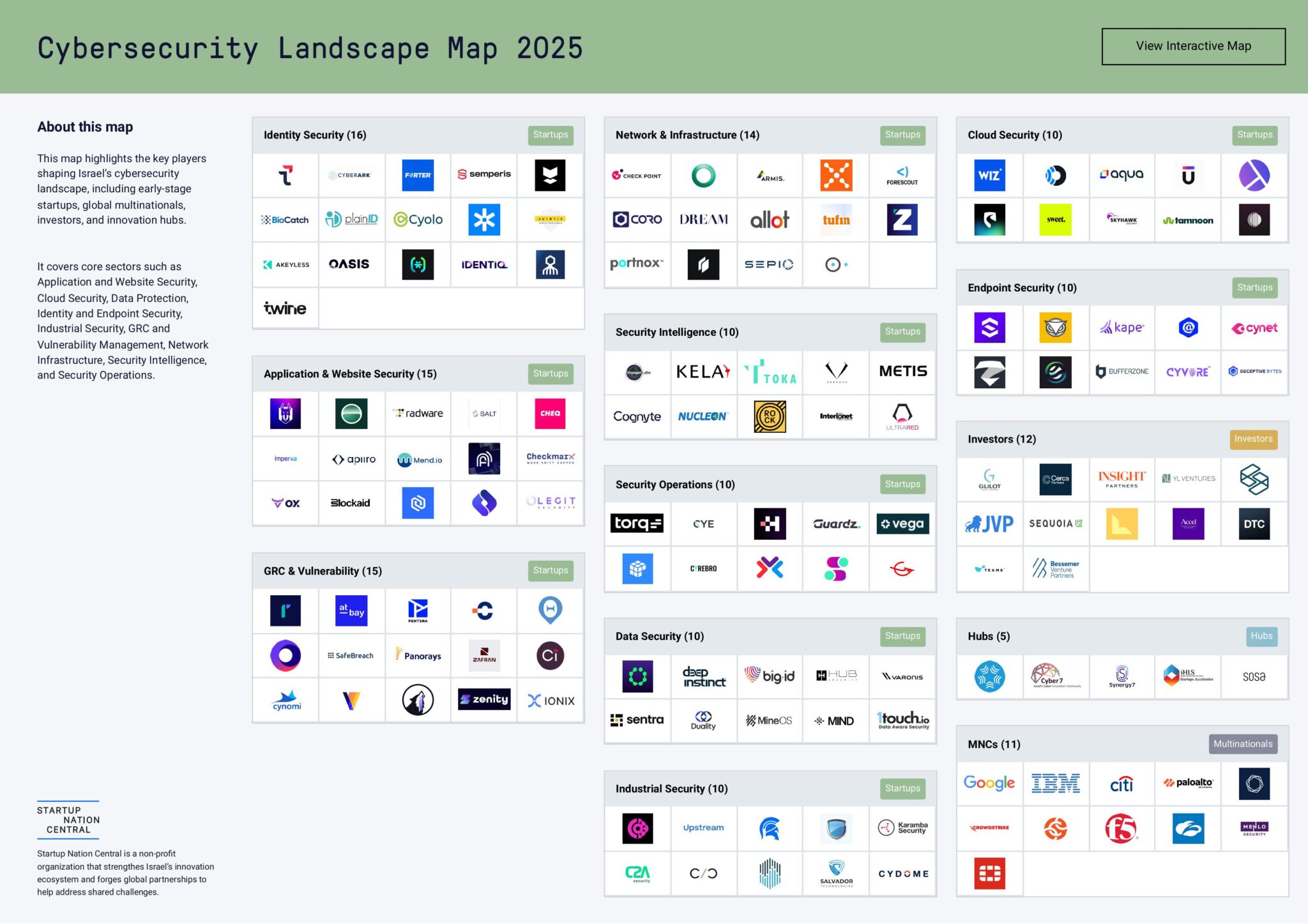

Explore the Israeli Cyber Security landscape map
Here is the list of all Israeli Cybersecurity tech companies
Cybersecurity Startups Cover Several Domains
Application & Website Security
Israel is at the forefront of the application and website security market, protecting software applications and websites from cyber threats, vulnerabilities, and attacks, with its innovative cybersecurity solutions and highly skilled workforce.
Notable Israeli Companies:
- Snyk – Developer Security Platform
- Island – Enterprise Browser
- Salt Security – API Security Platform
Cloud Security
Protecting data, applications, and infrastructure hosted in cloud environments. Israel has become a leading global hub for cloud security innovation, with a thriving ecosystem of startups and a strong emphasis on research and development.
Notable Israeli Companies:
- Wiz – Cloud Security Platform
- Orca Security – Cloud Visibility Platform
- Aqua Security – Cloud-native Security Platform
Data Security
Protecting sensitive data from unauthorized access, disclosure or modification. Israel has a strong ecosystem of startups specializing in data encryption, access controls, and privacy protection.
Notable Israeli Companies:
- Cyera – Cloud Native Data Security Platform
- Deep Instinct – Cybersecurity Platform Powered by Deep Learning
- BigID – Data Intelligence Platform
Endpoint Security
Securing individual devices, such as computers, mobile phones, and IoT devices, from cyber threats. It involves measures like antivirus software, encryption, access controls, and threat detection to prevent malware infections and unauthorized access.
Notable Israeli Companies:
- SentinelOne – Autonomous AI Endpoint Security Platform
- Cybereason – Unified Cyberattack Protection
- Kape Technologies – Global Privacy and Security Solutions
GRC & Vulnerability
Governance, Risk Management, and Compliance (GRC) refers to the framework organizations use to ensure cybersecurity policies align with regulations, manage risks, and maintain compliance with industry standards. Vulnerability management involves identifying, assessing, and mitigating security weaknesses in systems to prevent cyber threats.
Notable Israeli Companies:
Identity Security
Protecting user identities, credentials, and access permissions from cyber threats. Israel is globally competitive in authentication, authorization, and identity management solutions, developing solutions to prevent unauthorized access and identity theft.
Notable Israeli Companies:
- Transmit Security – Customer Identity Access Management
- CyberArk – Identity Security Solutions
- Forter – Identity Intelligence Platform
Industrial Security
Safeguarding critical infrastructure, manufacturing systems, and industrial control systems (ICS) from cyber threats is crucial. Includes securing operational technology (OT), preventing cyber-physical attacks, and ensuring resilience against disruptions in sectors like manufacturing, energy, and transportation.
Notable Israeli Companies:
- Claroty – Cyber-Physical System Security Solutions for Diverse Sectors
- Upstream Security – Cloud-based Security Platform for Connected and Autonomous Fleets
- Cylus – Railway Cybersecurity Solutions
Network & Infrastructure Security
Israel offers an emerging hub for innovative network and Infrastructure security solutions, protecting digital and physical infrastructure, including networks, servers, and data centers, from cyberattacks through firewalls, encryption, intrusion detection systems, and zero-trust architectures.
Notable Israeli Companies:
- Check Point Software Technologies – Cybersecurity Solutions for Governments and Corporate Enterprises
- Cato Networks – Cloud-based Secure Enterprise Networks
- Armis – Asset Intelligence Platform
Security Intelligence
Gathering, analyzing, and utilizing information related to security threats, vulnerabilities, and risks is critical to support decision-making and enhance security measures and cyber defense strategies.
Notable Israeli Companies:
- Voyager Labs – AI-based Behavioral Analytics
- KELA – Comprehensive Cyber Intelligence Platform
- Toka – Cybersecurity Apps for Government Institutions
Security Operations
Improving the security posture of an organization is critical. Israel stands out in combining internal information security and IT operations practices to improve collaboration and reduce risks.
Notable Israeli Companies:
Notable 2025 Cybersecurity Rounds
This table outlines the key Israeli cybersecurity firms that have attracted significant private investment during 2025 to date:
Notable Exits
The following table highlights exits (M&As and IPOs) from the last 6 years. Notably, Wiz acquisition by Google for $32 billion, stands as the largest ever acquisition of an Israeli tech company and the largest acquisition in Google’s history.
Summary
Israel has firmly established itself as a global cybersecurity powerhouse, driven by deep-rooted military expertise, a robust innovation ecosystem, and strong investor confidence. In 2024 and early 2025, the sector delivered a strong performance nearly doubling its funding from the previous year. Israel’s cybersecurity is scaling quickly, showing a healthy distribution across early and growth stages, high M&A activity, and scalable organizational structures.
As cyber threats evolve in scale and sophistication, the cybersecurity sector in Israel is well-positioned to lead on critical fronts by delivering advanced, globally relevant solutions that safeguard digital infrastructure worldwide.
Methodology
The companies featured in this spotlight and on the associated map were selected based on key indicators of innovation and impact, including recent funding rounds or government grants, notable milestones, strategic partnerships, and the uniqueness of their technology.
The report is based on the Startup Nation Finder database, except for global funding metrics, which are based on Pitchbook. Private Funding includes the following round types: Pre Seed, Seed, A, B, C, D, E, F, G Rounds, Convertible Debt, SAFE, Equity Crowdfunding, and Undisclosed rounds.
This year’s event holds particular significance, marking 15 years of Cyber Week’s role as a cornerstone of global cybersecurity. Featuring world-class content and expert knowledge at our conferences, seminars, focused-sessions, roundtables and networking events, Cyber Week remains an event you will not want to miss.
About Us
Startup Nation Central is a free-acting NGO providing global solution seekers frictionless access to Israel’s bold and impatient innovators to help tackle the world’s most pressing challenges. Our free business engagement platform, Finder, delivers unrestricted access to real-time, updated information and deep business insights into the Israeli tech ecosystem.

